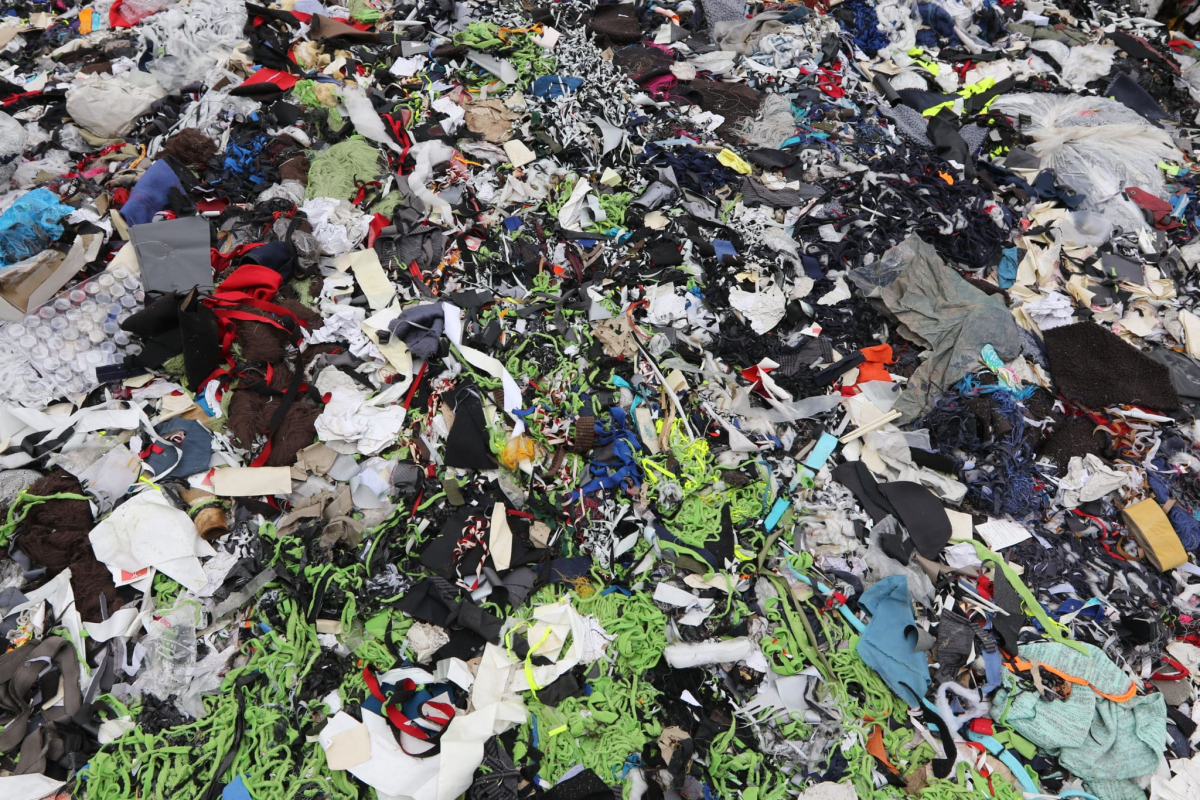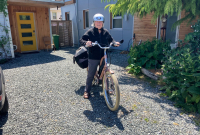Support strong Canadian climate journalism for 2025
These in-their-own-words pieces are told to Patricia Lane and co-edited with input from the interviewee for the purpose of brevity.
Marley Alles wants to help you make money from the clothes in your closet.
This 26-year-old founded rax | clothing rental to allow consumers to rent event and seasonal pieces from peer owners.

Tell us about your project.
In 2021, I wanted a dress for a special occasion but disliked the idea of supporting fast fashion or paying hundreds of dollars for an outfit I knew I would wear only once. I realized there was a need for a peer-to-peer clothing rental company in Canada, like Airbnb but for clothes. After a year or so of research, I launched “rax” in December 2022. By the end of March, with as yet no paid advertising, we already had over 500 users.

Why would a consumer choose to rent when fast fashion is so cheap?
Consumers are increasingly worried about climate change, the fashion industry’s contribution to pollution and plastics and its terrible human rights track record. Fashion adds 10 per cent of the globe's greenhouse gas emissions and this will rise to 50 per cent if left unchecked. It takes 700 gallons of water to make one cotton T-shirt and that water is polluted by the time it is returned to the water table. Ninety-seven per cent of our clothes are made in the Global South by people working in slave-like conditions who are paid less than their country’s living wage.
In a world facing widespread water shortages, rising emissions and escalating inequity, becoming mindful about our fashion choices is seen as a moral imperative by more and more of us each year.
Many people are price-conscious these days and are struggling to pay for basics, let alone an expensive outfit they might wear once or twice. “rax” offers a solution to that problem as we recommend renters list their items at 20 per cent of their retail price. This means our prices are also usually lower than for brand-name peer-to-peer sales.
Owners use “rax” to turn clothing, usually one of their greatest expenses, into one of their greatest assets by monetizing items that aren’t used 99 per cent of the time.

How did your background lead to this idea?
My parents always supported my interests and encouraged me to try anything I wanted to do. I've always been interested in startups and entrepreneurship. In university, I was a teaching assistant for a course where students had to create their own real business on Shopify. This led to the professor recommending me to consult for companies nearby. When I graduated, I worked in advertising developing ad strategies for some of the world's biggest brands. At present, my day job is with Bell Curve helping other startups grow. Having my own is a natural step for me.
Frankly, climate change and environmental issues are new for me. Once I started researching peer-to-peer clothing rental, I realized a shift is needed in the way we consume fashion. This is one way I can help.
What makes your work hard?
Potential users must undergo a shift in mindset from owning clothes to renting.

What gives you hope?
The generation coming after mine is seriously interested in thrifting and conservation. They do think about the impacts of their choices.
What do you see if we get it right?
Fashion rental becomes the new normal for event or seasonal pieces or even for pieces we now purchase on a whim.

What advice do you have for other young people?
When I first thought of the idea, I doubted myself. Why would I be the one to make this difference? If it was such a good idea, wouldn’t it already be done by someone with more resources, time, experience? But if we all thought like that, nothing would change. Dream big. You can make a difference.
What about older readers?
Individual habits make up global behaviour. While it is absolutely true that we need governments and industry to change, if we each make small eco-shifts in our daily behaviours, it can make a huge impact.







Comments